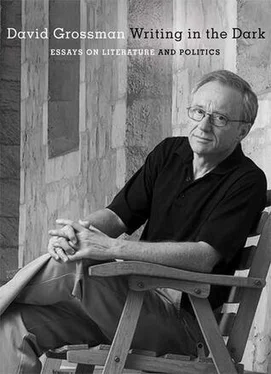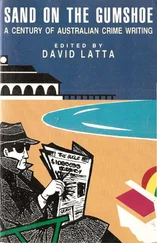I have no doubt that removing the external threat from Israel will clear a large space for it to cope with its profound domestic troubles. Although the crux of the central argument between “right” and “left,” on the question of the Occupation, will be dulled, other issues will jump to the forefront: the vast social and economic gaps, the tense relations between secular and religious Jews, between Jews and Arabs, and between different immigrant groups who are unable and unwilling to understand one another. Such circumstances may expose the fragility of the diverse and diffuse immigrant society that has emerged in Israel. They may also reveal the weakness of the democratic worldview, which does not seem to have been truly internalized by most citizens, both because they came to Israel from countries that never knew democracy and because it is impossible for a state to maintain true democracy while simultaneously upholding a regime of occupation and oppression.
Still, only a madman or a complete cynic would prefer Israel’s century-old state of war to a state of peace, bad as it may be. Even if internal conflicts do erupt, even if genies are let out of their bottles, they will be our genies, the internal, authentic identity materials of the State of Israel and Israeli society. In some sense, the developments that occur then, though they may be painful, will be far more relevant to the construction of Israeli identity than the processes in which Israel has found itself due to the conflict with the Arabs. The fact that such hesitations are openly voiced and contemplated by many Israelis attests to the powerful destruction and degeneration that can result from prolonged exposure to the cancerous rays of war.
“Here in the land our ancestors cherished, all our hopes will come true,” our pioneering forefathers sang when they came to Eretz Yisrael roughly a century ago. Today it is clear that many years will pass before even a fraction of “all our hopes” comes true. It will be very difficult to relinquish the distortions of violence and anxiety, as it is sometimes difficult for a slave to lose his shackles or for someone to let go of a defect around which his entire personality has been constructed.
Because the situation we live in, in Israel, in Palestine, in the Middle East, has become a sort of national and personal defect. Many of us have become so used to the deformation that we find it difficult to even believe in any other existence. Others create entire ideologies, political and religious, to ensure the continuation of the present situation.
Hegel said that history is made by evil people. In the Middle East, I think we know that the opposite is also true: we have seen how a certain history can make people evil. We know that prolonged existence in a state of hostility, which leads us to act more stringently, more suspiciously, in a crueler and more “military” manner, slowly kills something within our souls and finally hardens like an internal mask of death over our consciousness, our volition, our language, and our simple, natural happiness.
These are the real dangers that Israel must act quickly to avoid. Israel needs to experience a life of peace, not only because peace is essential for its security and economy, but so that it can, in a sense, get to know itself. So that it can discover everything that is still present, though dormant, in its being: the parts of its identity and personality, and the possibilities of existence, that have been suspended until the anger dies down, until the war ends, until it can be allowed to live life to the fullest in all its dimensions, not only the narrow dimension of survival at any cost.
Elias Canetti writes in one of his essays that survival is in fact a repeated experience of death. A sort of practice of death and of the fear of death. At times I feel that a nation of sworn survivors like the Jewish people is a nation that somehow addresses death at least as insistently as it addresses life, a nation whose intimate and permanent interlocutor is death, no less than life itself. And I do not mean to imply a romanticization or idealization of death, or even the idea of being in love with death (akin to the prevailing notions in late-nineteenth-century Germany, for example). Rather, I am speaking of something more profound. Of some firsthand knowledge, a bitter knowledge that is passed through the umbilical cord, a knowledge of the concreteness and the actuality and the daily availability of death. A knowledge of the “unbearable lightness of death,” whose saddest expression I ever heard was in an interview with an Israeli couple on the eve of their marriage. They were asked how many children they would like to have, and the sweet young bride immediately answered that they wanted three children, “so that if one is killed, we will still have two.”
When I hear Israelis, even very young ones, talk about themselves and about their fears, about not daring to hope for a better future, when I am exposed — in those close to me, and in myself — to the powerful existential anxiety and the influence of the tragic historical Jewish memory, I can often feel, chillingly, the failing left in us by history, the terrible tendency to view life as latent death.
In a life of stable and continued peace, this failing and these anxieties may find some cure. If Israel can live in peace with its neighbors, it will have the opportunity to express all of its abilities and all of its uniqueness. To examine, under normal conditions, what it is capable of as a nation and as a society. To discover whether it is able to forge a spiritual and material reality full of life, creation, inspiration, and humanity. To examine whether its Jewish citizens can extricate themselves from the destructive fatal metaphor framed for them by other nations, who have viewed them as eternal strangers, as borderless nomads among nations — to step out of these definitions and become a nation “of flesh and blood.” Not just a symbol or an abstract concept, not a parable or a stereotype, not an ideal or a demon. A nation in its country, a nation whose state is surrounded by internationally recognized and defensible borders. A nation that enjoys not only a sense of security and continuity but also a rare experience of actuality , of being, finally, “part of life” and not “larger than life.” Perhaps then Israelis will be able to taste what even after fifty-six years of independence they do not truly know — a deep internal sense of security, of “solid existence,” like the one expressed so simply and movingly in the musaf prayer recited on the Sabbath: “And plant us in our borders.”
I conclude with one more wish, which I once expressed in my novel See Under: Love. This wish is uttered at the very end of the book, when a group of persecuted Jews in the Warsaw ghetto finds an abandoned baby boy and decides to raise him. These elderly Jews, broken and tortured, stand around the child and dream about what they would like his life to be, and into what sort of a world they would like him to grow up. Behind them, the real world is going up in smoke, with blood and fire everywhere, and they say a prayer together. This is their prayer: “All of us prayed for one thing: that he might end his life knowing nothing of war … We asked so little: for a man to live in this world from birth to death and know nothing of war.”
Lecture at the Levinas Circle meeting in Paris, December 5, 2004
Yitzhak Rabin Memorial Rally
The annual memorial ceremony for Yitzhak Rabin is the moment when we pause to remember Rabin the man and Rabin the leader. We also look at ourselves, at Israeli society, at its leadership, the national mood, the status of the peace process, and at our own place as private individuals within the national developments. It is not easy to look at ourselves this year.
Читать дальше












